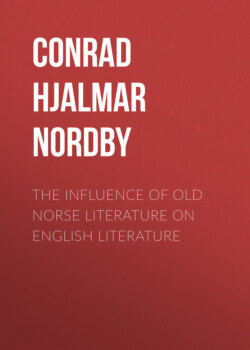Читать книгу The Influence of Old Norse Literature on English Literature - Conrad Hjalmar Nordby - Страница 14
На сайте Литреса книга снята с продажи.
DRAKE (1766–1836). MATHIAS (1754–1835).
ОглавлениеTable of Contents
In the second decade of the nineteenth century, Nathan Drake, M.D., made a strong effort to popularize Norse mythology and literature. The fourth edition of his work entitled Literary Hours (London, 1820) contains [11] an appreciative article on the subject, the fullness of which is indicated in these words from p. 309:
"The most striking and characteristic parts of the Scandinavian mythology, together with no inconsiderable portion of the manners and customs of our northern ancestors, have now passed before the reader; their theology, warfare, and poetry, their gallantry, religious rites, and superstitions, have been separately, and, I trust, distinctly reviewed."
The essay is written in an easy style that doubtless gained for it many readers. All the available knowledge of the subject was used, and a clearer view of it was presented than had been obtainable in Percy's "Mallet." The author was a thoughtful man, able to detect errors in Warton and Percy, but his zeal in his enterprise led him to praise versifiers inordinately that had used the "Gothic fables." He quotes liberally from writers whose books are not to be had in this country, and certainly the uninspired verses merit the neglect that this fact indicates. He calls Sayers' pen "masterly" that wrote these lines:
